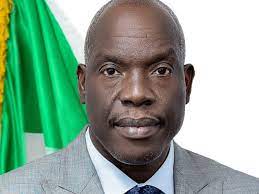The Nigerian Upstream Petroleum Regulatory Commission (NUPRC) has issued seven new regulations to guide operators in Nigeria’s oil and gas industry.
The commission’s Chief Executive Officer, Engr. Gbenga Komolafe, who disclosed this in a statement issued on Thursday, clarified that the seven new regulations were aimed at creating a regulatory environment that assures efficiency, predictability, clarity, and effectiveness.
The new regulations which were announced at a ceremony that was witnessed by the Executive Secretary of the Nigerian Extractive Industry Transparency Initiative (NEITI), Dr. Orji Ogbonnaya Orji, have now increased the industry regulations to 12 regulations under the provisions of the Petroleum Industry Act (PIA), 2021.
Justifying the necessity of the regulatory initiative, Komolafe said: “Our drive to promote clarity, trust, and predictability in the industry has remained unflinching as evident in the efforts deployed towards ensuring that regulations and key policies necessitated by the PIA are developed and gazetted expeditiously to enable alignment with the provisions of the PIA.”
According to the NUPRC boss, the latest regulations comprised the Nigeria Upstream Petroleum Measurement Regulations 2023 issued to close the metering gap in upstream petroleum operations, encourage accelerated hydrocarbon measurement metering devices roll-out in upstream petroleum operations, encourage the development of independent and competitive meters used in the Upstream as well as attract private investment in the provision of metering services; and the Production Curtailment and Domestic Crude Oil Supply Obligation Regulations 2023, which is designed to provide general rules for production curtailment and utilization of the produced petroleum in relation to export and domestic crude oil supply obligations, pursuant to sections 8(c) and 109 of the Act.
The regulations include the Frontier Basins Exploration Fund Administration Regulations 2023, will also provide the general rules for the exercise of the Commission’s responsibilities with respect to frontier basins in Nigeria, pursuant to section 9 of the Act and the administration of the Frontier Exploration Fund. The aim is to encourage and attract investment to the frontier basins in Nigeria.
The Nigeria Upstream Decommissioning and Abandonment Regulations 2023, which seeks to ensure that decommissioning and abandonment activities are conducted in accordance with good international petroleum industry practices. The regulations also set the framework for the establishment and administration of a Decommissioning and Abandonment Fund.
Similarly, the Significant Crude Oil and Gas Discovery Regulations 2023 aims at ensuring the optimum exploitation of petroleum covered by Petroleum Prospecting Licenses, granted under the Act, by the retention of areas of significant crude oil discovery and significant gas discovery by a licensee for a specified time in accordance with section 78 of the Act.
Also, the Gas Flaring, Venting, and Methane Emission (Prevention of Waste and Pollution) Regulations 2023 seeks to reduce the environmental and social impact associated with gas flaring and venting of natural gas and fugitive methane emissions into the atmosphere and preserve and protect the environment as well as prevent the waste of natural resources, enhance energy transition in Nigeria and create social and economic benefits from gas flaring and venting.
The Nigeria Upstream Petroleum Unitization Regulations 2023 establishes rules, principles, and procedures for the implementation of unitization of oil and gas from a petroleum reservoir that extends beyond the boundaries of a license or lease area into an area to which another license or lease relates.
It would be recalled that NUPRC had last year issued five regulations to guide operators in the industry, namely the Petroleum Licensing Round Regulations 2022; the Petroleum Royalty Regulations 2022; the Domestic Gas Delivery Obligations Regulations 2022; the Conversion and Renewal (Licences and Lease); and the Nigeria Upstream Petroleum Host Communities Development Regulations 2022.






